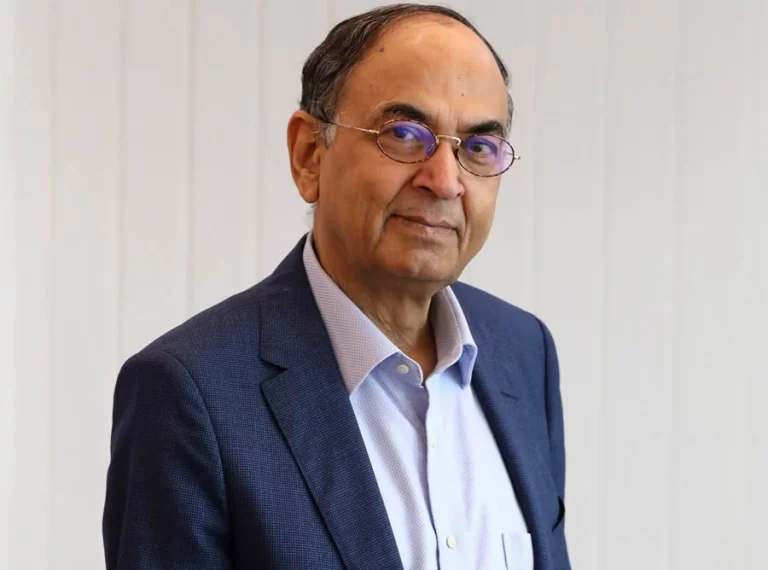Dr. PS Gahlaut: The Future of Sustainable Agriculture
In today’s world, we are confronted with unparalleled challenges in food security, environmental degradation and climate change. To address these pressing issues, stakeholders across the globe are now prioritizing sustainable farming practices. Sustainable agriculture not only helps meet the exponentially growing demand for food but also mitigates the adverse impacts on our planet. We ask Dr. PS Gahlaut, MD of Indian Potash Limited (IPL), about the challenges and opportunities that sustainable agriculture presents, and what is the importance and future scope of sustainable agriculture.
Changing Landscape of Agriculture: Challenges & Opportunities
The agriculture industry is facing numerous challenges such as population growth, limited arable land, water scarcity and climate change. These challenges pose a threat to traditional farming methods and call for innovative approaches to produce food sustainably. However, they also present opportunities for implementing sustainable practices, adopting new technologies and diversifying agricultural systems. “Overtaking China, India is now the most populous country and the number is only expected to grow exponentially in the future as well. While it is throwing some critical challenges to the agriculture sector, now we also have ample opportunities to exploit and overhaul the food and agro-industry in India,” says PS Gahlaut.
Importance of Sustainable Farming
“4th July 2023 was the warmest day ever recorded by humans. Thus, Sustainable farming is not just a fancy term. Sustainable farming is today’s need for culminating global warming. Historically speaking, India is known to the world for its sustainable practices, we will again take the lead in sustainable farming,” emphasizes PS Gahlaut. Sustainable farming can be defined as an approach that seeks to minimize the environmental impact of agriculture while simultaneously ensuring long-term productivity and profitability. This method promotes the preservation of soil health, water conservation, and biodiversity. He also explained how by the conscious adoption of sustainable practices, farmers can safeguard the essential natural resources necessary for food production and establish resilient farming systems capable of adapting to evolving environmental conditions.
Also read: Why is the demand for Green Hydrogen rising globally?
Technology in Sustainable Farming
Technological advancements are playing a crucial role in transforming agriculture toward sustainability. “Precision agriculture, IoT sensors, drones, and satellite imaging enable farmers to optimize resource use, monitor crop health and make data-driven decisions. However, AgriTech Startups will have to play an aggressive role to bring technology closer to a farmer living in a remote countryside. Penetration of technology deep into villages is the key to success. I am proud of what is already done by some of these AgriTech startups but I believe more can be done as there’s a huge scope,” says Parvinder Singh Gahlaut of Indian Potash Limited.
Additionally, vertical farming, hydroponics and aquaponics offer innovative solutions for efficient food production in urban areas with limited space.
Educating Farmers on Sustainable Farming
To ensure the widespread adoption of sustainable farming practices, education and awareness play a vital role. Dr. PS Gahlaut believes that farmers need to be “armed with a deep understanding of soil conservation, crop rotation, integrated pest management and a range of other cutting-edge farming techniques.” Training programs, workshops and agricultural extension services can help disseminate information and empower farmers to make informed decisions regarding sustainable practices. He believes that this can be fostered with enhanced cooperation between government bodies and the private sector.
Future Scope of Sustainable Farming
Dr. P S Gahlaut further explained why the future of sustainable agriculture holds great potential. “We need to understand that agroecology, regenerative agriculture and agroforestry are emerging practices that focus on enhancing ecosystem services, promoting biodiversity and building resilient agricultural systems. The main approach is to restore degraded lands, reduce carbon footprint and mitigate climate change while ensuring enhanced food production.” Parvinder Singh Gahlaut also discussed how the implementation of artificial intelligence, robotics, IoT and blockchain technology in agriculture also open new avenues for sustainable farming practices.
As we navigate the complexities of a changing world, sustainable agriculture emerges as a beacon of hope. As PS Gahlaut emphasized, through sustainable farm practices, farmers have the power to make significant contributions to food security, environmental conservation, and economic viability. The combination of technological advancements, farmer education and innovative farming methods pave the way for a future where sustainable agriculture is at the forefront. Let us embark on this transformative journey towards a more sustainable and resilient agricultural system, for the betterment of our planet and future generations.
Also read: GRIHANIKALA: Entrepreneurial wave of independence.












